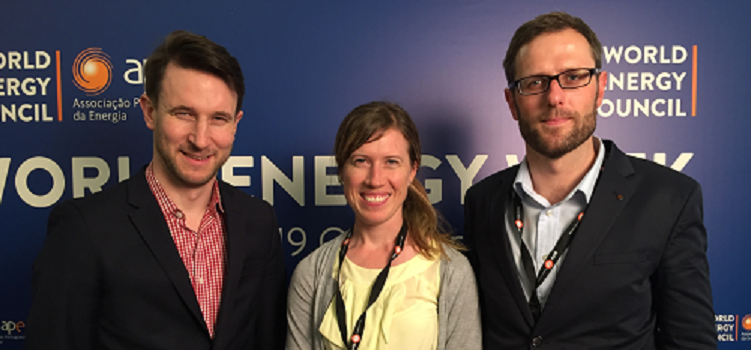Joshua Riddiford – Wed, 07 Feb 2018
Source: Energy News

The country’s future energy leaders are being sought by the BusinessNZ Energy Council.
There are 100 Future Energy Leaders worldwide chosen by the World Energy Council and the BEC is seeking nominations from New Zealand professionals by 5pm Monday.
Bennet Tucker, recently appointed FEL-100 board secretary, says becoming a future energy leader provides exposure to global energy professionals and issues and ideas with international resonance.
Discussing those issues with a range of players from across the sector has been a highlight from his time as a FEL, says Tucker, also Transpower’s market security services manager.
“One minute I’m talking to a strategic advisor for Statoil about how they’re going to approach decarbonisation and their strategy around that and then sitting next to me on my left is the leading academic in hydrogen fuel research.”
Global thinking
While every country faces unique energy challenges, membership to the FEL-100 provides opportunities to gain experience and lean from how other jurisdictions and firms are dealing with issues.
BEC chair David Caygill says Tucker’s appointment as secretary of the FEL-100 board reflects his and New Zealand’s contribution to the programme.
“As a small trade dependent country we continue to produce leaders who with resolve and optimism share our local energy and wider cultural experiences with the rest of the world and bring the best global thinking back home.”
Tucker says no particular area of the industry is preferred for prospective FELs.
“You could be a policy analyst at MBIE working in the energy space through to generation or it might be on the retail side of things or the hard technology space working with digital technology.”
A willingness to learn and develop their skills, combined with a high level of self-motivation is key to success as a FEL.
“You get out what you put in,” he says.
Punching above our weight
Applicants must be 35 or younger and be financially supported by their employer to attend WEC events including the annual forum.
They must submit a CV and completed application form, including a personal statement, to YEPN by 5pm on Monday.
Successful New Zealand applicants will then be nominated by the BEC to the WEC who will select incoming FELs.
Tucker, along with Z Energy Biofuels strategy manager Tina Frew and Powerco data scientist Daniel Gnoth (pictured, left to right) are New Zealand’s FELs. The three attended the World Energy Council forum in Lisbon in October where the trends of decarbonisation, decentralisation and digitilisation were discussed.
Frew is standing down this year, along with 34 others.
There are no set allocations for FELs on a per country basis. Each individual applicant is assessed on their own merits.
Tucker says New Zealand has done well to have three professionals appointed as FELs which reflects the strong reputation of the country’s energy sector. He says the country has a “good shot” of getting another.
“It’s fair to say New Zealand has a pretty good reputation. The people who have represented on the FEL in the past have done a very good job and so we often punch above our weight in terms of numbers on the FEL.”
It also reflects the high regard in which the BEC is held by the international energy community, he says.
Challenges, opportunities
Besides attending the annual WEC forum, FELs also produce an annual “World Energy Issues Monitor” report covering issues that keep them up at night. They also contribute to other special reports, network with other young energy professionals around the world and participate in taskforces looking to address challenges to the industry.
Tucker sat on a human capital taskforce which looked at how the energy sector could better attract and retain young talent – particularly those with a tech background.
He says it is a challenge for the energy sector to stand apart from major tech companies such as Google. The sector’s complexity also means it can be hard to sell.
But Tucker says the “feel-good” factor of making a difference and solving challenging problems can make it an attractive proposition.
“You have a real chance to shape people’s lives by providing them with an essential service.”
“You can change the world. You can be involved in decarbonisation and these great initiatives.”
